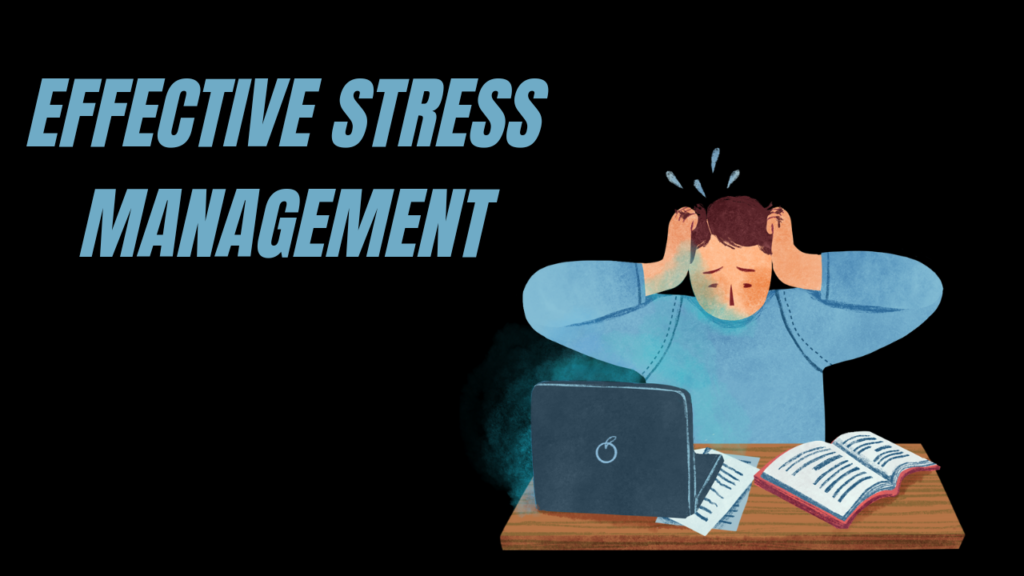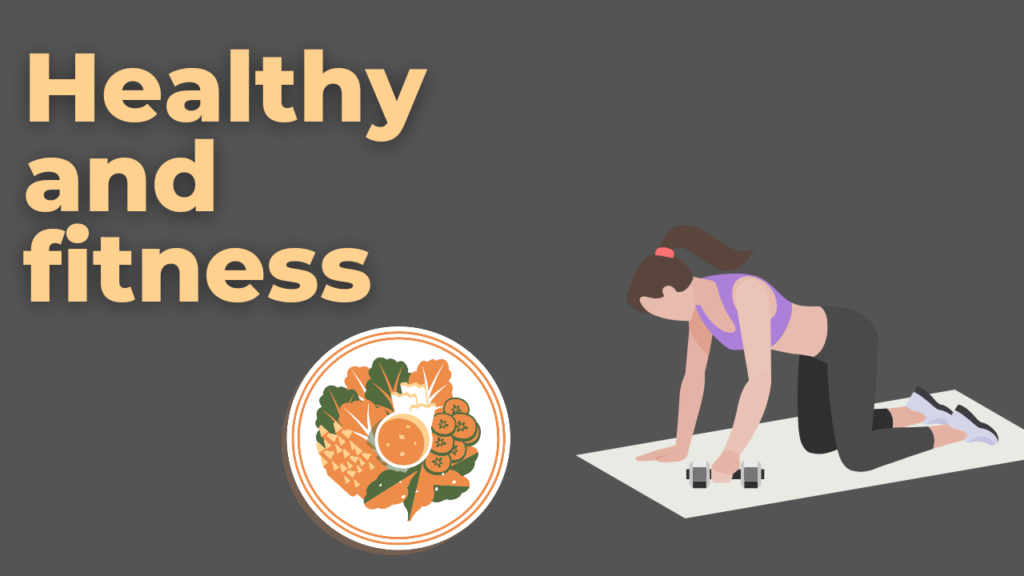EFFECTIVE STRESS MANAGEMENT

Effective stress management is crucial for maintaining both mental and physical well-being. Here are key strategies:
- Regular Exercise: Engage in physical activity, as it helps release endorphins, the body’s natural stress relievers. This can include activities like walking, running, yoga, or even simple stretches.
- Mindfulness and Meditation: Practice mindfulness to stay present and focused. Meditation techniques, deep breathing exercises, and guided imagery can help calm the mind and reduce stress.
- Adequate Sleep: Ensure you get enough quality sleep. Lack of sleep can contribute to increased stress levels.
- Healthy Nutrition: Maintain a balanced diet with a variety of nutrient-rich foods. Avoid excessive caffeine and sugar, as they can contribute to energy fluctuations and affect stress levels.
- Time Management: Organize your time effectively to reduce feelings of overwhelm.
- Social Connections: Build and maintain strong social connections. Spending time with friends and family provides emotional support and can help alleviate stress.
- Learn to Say No: Be mindful of your commitments and don’t overextend yourself. Learning to say no when necessary is crucial for managing stress and maintaining a healthy balance.
- Hobbies and Relaxation Techniques: Engage in activities you enjoy, whether it’s reading, listening to music, or pursuing a hobby.
Remember, what works for one person may not work for another, so it’s essential to find a combination of strategies that suits your lifestyle and preferences. Consistency is key in stress management.
- Regular Exercise: Physical activity helps reduce stress hormones and triggers the release of endorphins, which are natural mood lifters.
- Mindfulness and Meditation: Practices like mindfulness meditation can promote relaxation and improve your ability to handle stressors.
- Deep Breathing Techniques: Focus on deep, slow breaths to calm the nervous system and reduce stress. Try techniques like diaphragmatic breathing.
- Adequate Sleep: Ensure you get enough quality sleep, as lack of sleep can exacerbate stress. Establish a consistent sleep routine for better relaxation.
- Healthy Nutrition: Eat a balanced diet with plenty of fruits, vegetables, and whole grains. Avoid excessive caffeine and sugar, as they can contribute to stress.
- Time Management: Organize tasks, prioritize responsibilities, and break them into manageable steps. This can help prevent feeling overwhelmed.
- Social Support: Share your feelings with trusted friends or family. Having a support system can provide comfort and perspective during stressful times.
- Setting Boundaries: Learn to say no when necessary and establish clear boundaries to prevent overcommitting and overwhelming yourself.
- Hobbies and Leisure Activities: Engage in activities you enjoy to provide a healthy distraction from stressors and promote a sense of fulfillment.
- Professional Help: If stress becomes overwhelming, consider seeking support from a mental health professional who can provide guidance and coping strategies.
Remember, it’s essential to find what works best for you, as everyone’s stressors and coping mechanisms are unique. Combining multiple strategies can often be more effective in managing stress.
Effective stress management is crucial for overall well-being. Consider these strategies:
- Regular Exercise: Physical activity releases endorphins, which act as natural stress relievers.
- Mindfulness and Meditation: Practice mindfulness to stay present and reduce anxiety. Meditation techniques, deep breathing exercises, and progressive muscle relaxation can promote relaxation.
- Healthy Lifestyle Choices: Prioritize sufficient sleep, maintain a balanced diet, and limit stimulants like caffeine and alcohol.
- Time Management: Organize tasks, set priorities, and break them into manageable steps.
- Social Connections: Maintain supportive relationships. Talking to friends or family can provide emotional support and different perspectives on challenges.
- Hobbies and Leisure Activities: Engage in activities you enjoy to take your mind off stressors. Hobbies can be a great way to relax and unwind.
- Learn to Say No: Assess your commitments and avoid overloading yourself. Saying no when necessary can help prevent excessive stress.
- Positive Thinking: Challenge negative thoughts and focus on positive aspects of situations.
Remember, it’s important to find a combination of strategies that work for you personally. Experiment with different techniques and tailor your stress management approach to fit your lifestyle.
Consider these strategies to better cope with stress:
- Regular Exercise: Physical activity releases endorphins, which act as natural stress relievers. Find activities you enjoy, whether it’s walking, jogging, or yoga.
- Mindfulness and Meditation: Practice mindfulness to stay present and focused.
- Deep Breathing Techniques: Engage in deep, slow breathing exercises. This can activate the body’s relaxation response and reduce stress hormones.
- Adequate Sleep: Ensure you get enough quality sleep.
- Time Management: Organize tasks and prioritize responsibilities. This can help prevent feeling overwhelmed.
- Social Support: Share your feelings with friends or family. Talking about stressors can be a valuable outlet.
- Healthy Lifestyle Choices: Maintain a balanced diet, stay hydrated, and limit caffeine and sugar intake.
- Set Realistic Expectations: Accept that you can’t control everything. Set achievable goals, and don’t hesitate to ask for help when needed.
- Hobbies and Relaxation: Engage in activities you enjoy.






